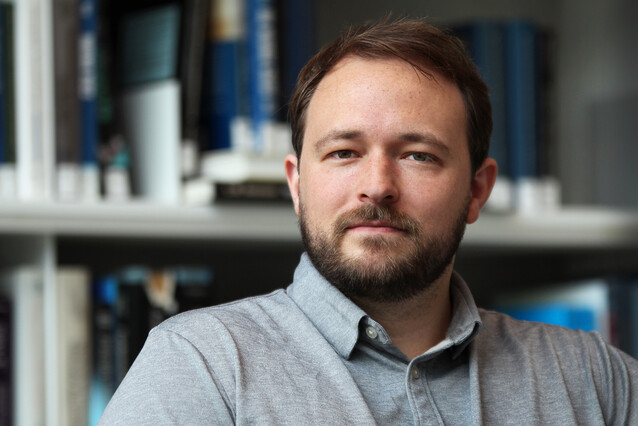EMBO Fellowship for IMP postdoc Stephan Raiders

EMBO Fellowships provide up to two years of funding for postdoctoral researchers. Stephan Raiders, a postdoc with Elly Tanaka at the IMP, was now awarded an EMBO Postdoctoral Fellowship in support of his research on regeneration.
Stephan Raiders, who joined the lab of Elly Tanaka last year to study the innervation of regenerated limbs in the Mexican salamander axolotl, was awarded a prestigious EMBO Fellowship.
Axolotls have the remarkable ability to regenerate complex structures including limbs. In addition to re-making the pattern of the limb, regenerated limbs must also be re-integrated into existing body systems such as the nervous system. Pioneering work in the mid- 20th century demonstrated that limb motor neurons in the spinal cord in control of limb muscles are able to form synaptic connections with identical muscles in the regenerated limb as they had in the original limb pre-injury. With support from the EMBO fellowship, Stephan Raiders now seeks to understand the mechanisms that allow axolotls to perform this regenerative feat.
"Compared to axolotls, mammalian motor neurons show a diminished ability to find their muscle targets after an injury," says Raiders. "This is why understanding the regenerative mechanisms in the axolotl may inform us of new routes towards healing nerve injuries in humans."
In order to understand why axolotls can regenerate their motor axons at such a precise level, Raiders will analyse the genes expressed by spinal motor neurons during limb regeneration, then assess the role of resident limb cells in guiding motor neuron axons into the limb, and finally determine if the axolotl regenerates by creating new motor neurons or repairing the ones that already existed.
Before joining the IMP, Stephan Raiders did a PhD at the University of Washington and the Fred Hutch Cancer Center in Seattle, where he had studied mechanisms of axon guidance in the nematode worm C. elegans. Previously, he had done his undergraduate studies in molecular and cell biology at the University of Puget Sound.
The EMBO Postdoctoral Fellowships are awarded for a period of up to two years and support excellent postdoctoral researchers in laboratories throughout Europe and the world. International exchange is a key requirement. EMBO Postdoctoral Fellowships also support the career development of the fellows through leadership courses and networking opportunities.
Further Reading